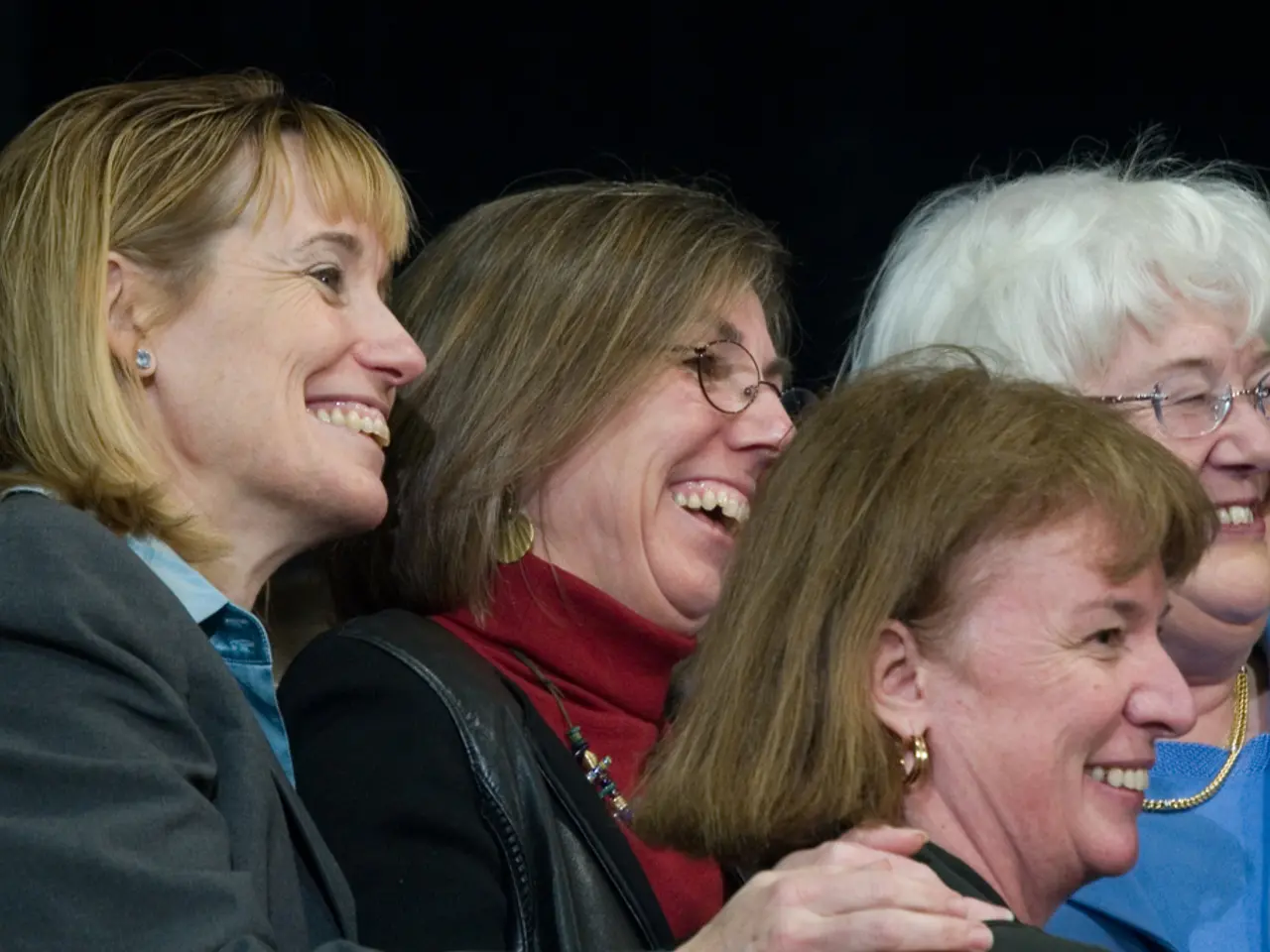Influencers on the Up: Supplanting Elders in Shaping Role Models
In the modern world, social media influencers have emerged as powerful figures, shaping the values and beliefs of the younger generation. This shift, while dynamic, has significant implications for youth identity, cultural transmission, mental health, and societal cohesion.
The traditional role of elders, emphasising long-term, experience-based guidance, moral teachings, and collective cultural continuity, contrasts sharply with the immediate and diverse platforms offered by social media influencers. These platforms provide opportunities for self-expression, identity exploration, and peer connection, often aligned with niche interests or social causes. Teens use these platforms not only for entertainment but to find belonging, learn about mental health, and engage in social justice, broadening and accelerating their exposure to varied worldviews beyond their familial or local communities.
This "time-compressed" environment, characterized by rapidly changing ideas and cultural norms, can fuel both engagement and pessimism about long-term prospects. The compressed information cycle on social media means that young people encounter ideas that shift rapidly, creating a world that can feel both exciting and overwhelming.
This evolution has both positive and negative aspects. On the one hand, social media empowers young people with unprecedented access to information, opportunities for activism, and communities supporting diverse identities. This democratizes influence and broadens social participation. However, it also raises concerns about mental health, self-esteem, and the quality of guidance received, as the ephemeral and sometimes superficial nature of social media conflicts with the depth and reliability traditionally offered by elders.
Regulatory and ethical issues also arise concerning young content creators’ wellbeing and control over their digital legacies, indicating new challenges in safeguarding youths within this influencer-driven culture.
This shift in values has profound implications for intergenerational dynamics. As older adults become more tech-savvy and socially active, there is potential for bridging gaps but also risk of misunderstanding as cultural authority decentralizes and societal values diversify. Traditional wisdom from elders may persist but must now coexist with digitally mediated, peer-driven influences, requiring new modes of dialogue and mutual understanding across generations.
Encouraging young people to seek guidance from both influencers and elders will ensure they receive a well-rounded understanding of the world - one that is both current and rooted in meaningful tradition. By fostering critical thinking, and emphasizing the importance of community, relationships, and values over trends, society can help bridge the gap between the influence of influencers and the wisdom of elders.
In a world where instant gratification, self-promotion, and surface-level perfection are often prioritised, the wisdom of elders, rooted in personal life experience, offers guidance on the complexities of life that may not be found in the aspirational, sometimes commercialized lens of influencer culture. It's crucial for society to strike a balance between the modern influence of social media and the timeless teachings that have helped people navigate the ups and downs of life.
References:
[1] Twenge, Jean M., et al. "iGen: Why Today's Super-Connected Kids Are Growing Up Less Rebellious, More Tolerant, Less Happy—and Completely Unprepared for Adulthood—and What That Means for the Rest of Us." Atria Books, 2017.
[2] Vogel, S. L., & Abramson, L. Y. "Gen Z's Mental Health: What We Know and What We Need to Know." Pediatrics, vol. 146, no. 2, 2020, pp. e2019007.
[3] Livingstone, Sonia, et al. "Social Media, Self-esteem, and Body Image: A Longitudinal Study of Adolescents Aged 10 to 15." Journal of Youth and Adolescence, vol. 49, no. 12, 2020, pp. 3071-3084.
[4] Woods, A. L., & Scott, J. "Intergenerational Relationships in the Digital Age: A Review and Future Directions." Journal of Applied Gerontology, vol. 39, no. 4, 2020, pp. 599-613.
- Influencers on social media, particularly those promoting fitness, motivation, health, and personal growth, can help young people adopt positive lifestyle choices while also engaging them in social justice issues and mental health discussions.
- The fashion-and-beauty and education-and-self-development sectors on social media expose teens to diverse worldviews, aiding them in self-expression, identity exploration, and broadening their horizons beyond their immediate communities.
- As social media provides instant gratification, self-promotion, and a sometimes superficial view of perfection, the wisdom and guidance of elders, rooted in personal life experience, becomes increasingly important in navigating the complexities of life.
- Striking a balance between the modern influence of social media and the timeless teachings of elders is crucial for nurturing critical thinking, emphasizing the importance of community, relationships, and values over fleeting trends.
- By encouraging young people to seek guidance from both influencers and elders, society will aid in their development, fostering a well-rounded understanding of the world that combines the current and the meaningful traditions of elderly wisdom.




